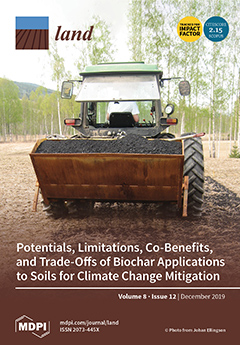WLE/Alliance-supported data sharing and big data applications being rolled out in Ethiopia to encourage the government's efforts to transform agriculture
A collaborative effort by WLE/Alliance, GIZ-Ethiopia and partners to institutionalize data sharing has led the Ethiopian Ministry of Agriculture to adopt the concept. Partners undertook many activities: creation of a digital web portal, data collation, standardization guidelines and big data analysis. They are now developing a site-specific fertilizer recommendation tool. This has led to better-targeted recommendations and a paradigm shift in the research and development discourse as well as further funding and scaling of the framework to other countries.
WLE/IWMI business models research at the sanitation-agriculture interface used in pan-Indian training program which will target over 5,000 officials in the next two years
WLE/IWMI’s analysis of 15 business models for fecal sludge management, including its treatment for energy or nutrient recovery in agriculture, was used by the Indian Water, Sanitation and Hygiene (WASH) Institute to develop capacity building modules. In 2021 and 2022, in collaboration with sector ministries across India, these will be used to train 2,860 government officials, 500 NGO professionals, 60 entrepreneurs, 1,200 sanitation workers, 320 treatment plant operators, and 240 graduates and postgraduates working in the WASH sector.
WLE/IWMI research influenced Ethiopian water sector policy reform to recognize multiple water values and other up-to-date options, benefitting irrigators, domestic and industrial users, and environment
The Ethiopian Government has initiated a process of water policy reform. WLE/IWMI was approached by the Ministries of Agriculture and of Water, Irrigation, and Electricity to contribute to the review. Drawing from its research, WLE/IWMI brought new ideas to the policy reform table. These ideas include the concept of multiple water values; payment for ecosystem services; irrigation cost recovery, and irrigation performance benchmarking. These options have been incorporated in the draft policy document and will strengthen climate change adaptation.
Laos’ hydropower development and cross-border power trade in the Lower Mekong Basin: a discourse analysis
Increasing demands for energy to boost the Mekong economies have attracted the keen interest of riparian countries for hydropower development. This is evidenced by extensive investment in hydropower projects across the region over the last few decades.
Climate Smart Investment Profile and state action plan for climate smart agriculture in Punjab and Rajasthan
IFPRI research team published a book "Climate-Smart Agriculture in South Asia" that contains various methodology for priority setting, land use decision, and policy review. In addition, IFPRI in collaboration with CCAFS has developed an analytical toolkit for climate-smart investment plans at the sub-national level in India. The World Bank Group has shown interest in the concept delineated in the above-mentioned pieces of evidence and research collaboration has been established that will help World Banks' investment decision.
Annual report 2019: CGIAR Research Program on Water, Land and Ecosystems
Results from the CGIAR Research Program on Water Land and Ecosystems (WLE) demonstrate how
new evidence and innovations contribute to sustainable intensification of agriculture at landscape
level. WLE’s solutions support producing more nutritious food while managing natural resources
more productively and sustainably in the face of critical climate change, health, demographic, and
economic challenges.
Assessment of the growth in social groups for sustainable agriculture and land management
Until the past half-century, all agriculture and land management was framed by local institutions strong in social capital. But neoliberal forms of development came to undermine existing structures, thus reducing sustainability and equity. The past 20 years, though, have seen the deliberate establishment of more than 8 million new social groups across the world. This restructuring and growth of rural social capital within specific territories is leading to increased productivity of agricultural and land management systems, with particular benefits for those previously excluded.
How beans are beating hunger in Burundi
Burundi’s population has been expanding
far faster than its economy. And while the
agriculture sector contributes around 40%
of GDP and to over 95% of food supplies,
high pressure on land is leading to soil
fertility depletion, eroding the country’s
capacity to ramp up food production for a
growing population.
The Flagship project: “Improving food
security, nutrition, incomes, natural
resource base and gender equity for better
livelihoods of smallholder households in
sub-Saharan Africa†between 2015 and
Farmers’ Perspective on Agriculture and Environmental Change in the Circumpolar North of Europe and America
Climate change may increase the importance of agriculture in the global Circumpolar North with potentially critical implications for pristine northern ecosystems and global biogeochemical cycles. With this in mind, a global online survey was conducted to understand northern agriculture and farmers’ perspective on environmental change north of 60° N.
From "Land to the Tiller" to the "New Landlords"? The Debate over Vietnam's Latest Land Reforms
Between Vietnam's independence and its reunification in 1975, the country's socialist land tenure system was underpinned by the principle of "land to the tiller". During this period, government redistributed land to farmers that was previously owned by landlords. The government's "egalitarian" approach to land access was central to the mass support that it needed during the Indochinese war.



